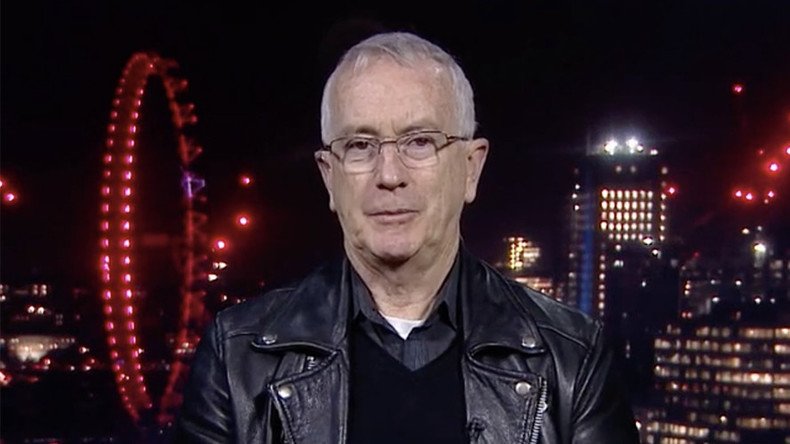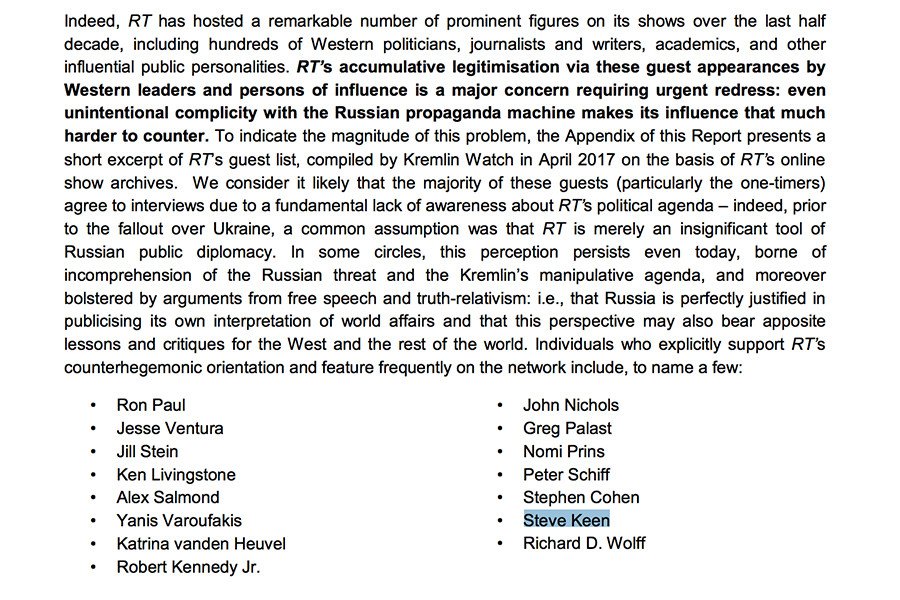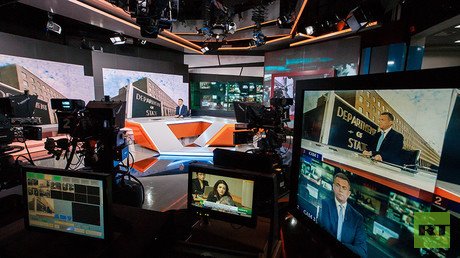How I sold out to the Putin-Soros-Murdoch conspiracy to destroy Western civilization

I was delighted to find myself in the Top Ten (alright; top 15) of the European Values list of 2,326 “Useful Idiots” appearing regularly on RT shows, and thus legitimizing Vladimir Putin’s attempt to destroy Western civilization as we know it.
Why delighted? Because it completes the set of conspiracies to which I can now be accused of belonging. They include:
• The Putin Conspiracy, since I am regularly interviewed on Russia Today (and even worse, I now get paid to write for RT!);
• The Soros Conspiracy, since my research, has been funded by the Institute for New Economic Thinking (INET) which he established;
• The Murdoch Conspiracy, since I appear every week on Sky News Australia with Carson Scott, and I used to get paid by News Ltd to write a weekly column; and
• The Alt-Right Conspiracy, since I’ve signed a book contract with Vox Day’s publishing firm Castalia House.

So not only am I a “useful idiot,” I’m a useful idiot for four contradictory conspiracies. Does that make me a double-double agent?
No, it makes me someone who’s quadruple pissed off with people who attempt to understand the world from the perspective of conspiracy theories in the first place. I don’t deny the existence of conspiracies: in fact, far from it, because they’re everywhere. What I do deny is the implicit assumption that the conspirators understand the system they’re attempting to manipulate.
For example, I’ve heard plenty of conspiracy theorists assert that the 2008 financial crisis was caused by the Federal Reserve/George Soros (Hi George!)/Hedge Funds/Academic-Economists-Who-Peddle-The-Efficient-Markets-Hypothesis, and “they” profited from it.
This implies “they” knew what “they” were doing. Pardon me, but I’ve met many of these protagonists—and in the case of academic economists, I’ve worked with them for 30 years. “They” don’t have a clue (except George). Even those that were actively conspiring—like many hedge funds during the subprime bubble were doing so on the basis of utterly deluded theories about how the system they were trying to game actually worked. Where apparent conspiracies did work, like Soros’s punt against the British Pound decades ago, they did so because a CSP (Clever Sinister Person) bet against the conventional wisdom of others who thought they understood the system (and did not), rather than because the CSP set up the whole thing in the first place.
Higher standards
As for the argument that I’m unwittingly playing into Vladimir Putin’s malevolent plans for Western democracy by being interviewed on RT, I have three rebuttals.
The first and most important is that RT simply has better programs and better journalists than, for example, the BBC.
I would gladly discuss issues such as what caused the 2008 economic crisis on the BBC, were I asked. But the BBC (and most other Western outlets that European Values and other conspiracy theorists think are superior to RT) just isn’t interested in the issues. With precisely two honorable exceptions, BBC programs and its journalists have only been interested in a story involving me when there was a personality angle to it.
I have been interviewed by the BBC 11 times since I arrived in the UK in mid-2014. Only two interviews were motivated by the journalist’s or program’s genuine interest in my non-orthodox approach to economics: a HARDtalk interview in August 2016, and an interview by Alice Baxter in January 2016.
Fully six were about my friend Yanis Varoufakis when he was Greece’s finance minister.
Two others were on November 3rd, 2016, about some news story that I’ve since forgotten.
And my most recent interview on the BBC, on September 14th this year to mark the 10th anniversary of the collapse of Northern Rock, was the clincher for me. That failure was the most significant financial event in the UK in almost eighty years: it was the first bank run since the Great Depression. I was pleased to be asked to discuss it on air, and I expected a serious treatment of it.
Instead, the item consisted of a two-minute introduction by one presenter, and a three-minute exchange with another which rates as one of the most vacuous interviews I’ve experienced in forty-five years of being interviewed by journalists (my first was as a 19-year-old politically active student at the University of Sydney in 1972). I did my best to answer inane questions seriously, but as one member of my Patreon community commented, you could see my answers parting the journalist’s hair. That was a cruel remark, but frankly a fair one.
BBC vacuum
Which raises the second riposte: why aren’t there shows that are interested in the in-depth analysis of economic issues on the BBC? Shows like the RT staples on which I was and continue to be interviewed regularly: Capital Account, the Boom Bust, the Keiser Report, Renegade Inc, the 7pm News with Bill Dod, and Going Underground.
It’s not because the programs were devised by dastardly Russian stooges: most of them were developed by independent broadcasters and pitched to a number of outlets. I know for a fact that at least one of these shows was pitched to the BBC before it was offered to RT. They weren’t interested, but RT was.
This isn’t because the BBC—and most Western media outlets—were too highbrow for these programs: the opposite is more the case. The BBC and its commercial rivals seem more interested in infotainment than analysis, more concerned with filling time with fancy graphics and pretty (male and female) talking torsos, than in actually getting to grips with the serious economic issues in a seriously challenging world.
The third rebuttal, which I’ll develop in more depth in a later column, is that if I can help strengthen Russia as a rival axis of power to the USA, then I think that’s a good thing. I’d rather have a bipolar (or tripolar) battle for global dominance between two (or more) Superpowers, than have a unipolar world with a single Superpower, led by a leader with a bipolar personality.
The statements, views and opinions expressed in this column are solely those of the author and do not necessarily represent those of RT.
















